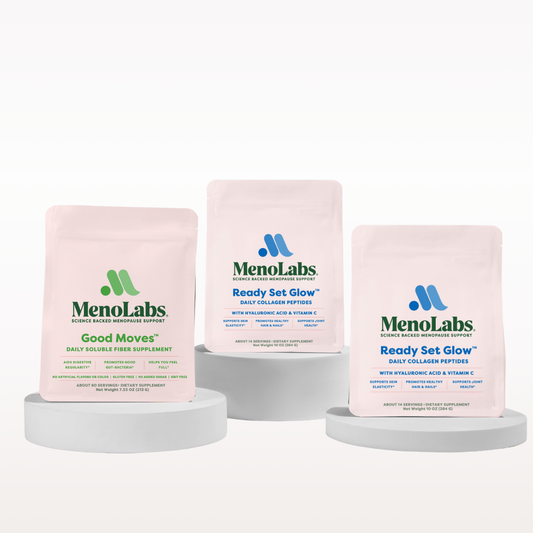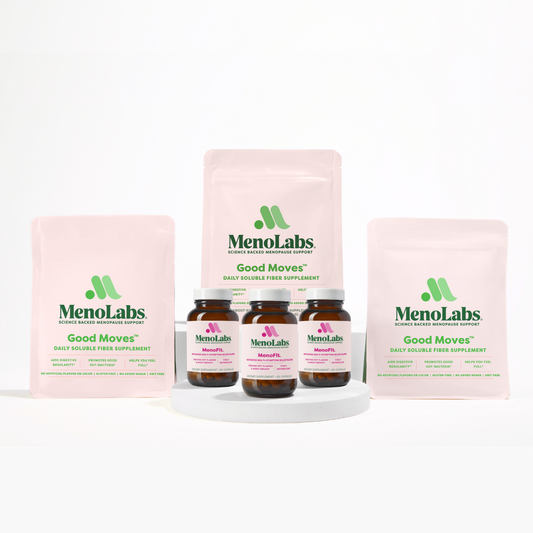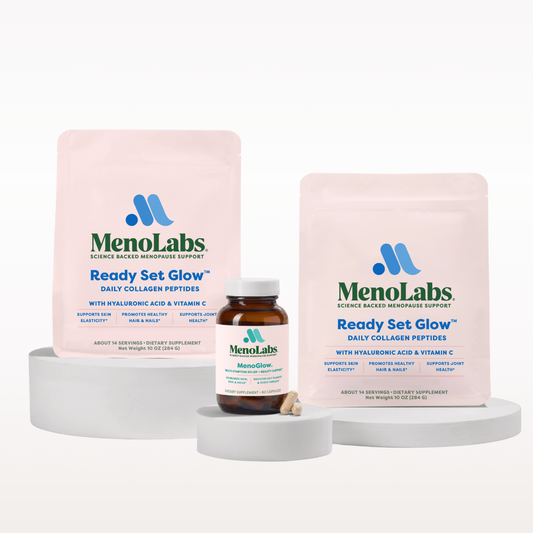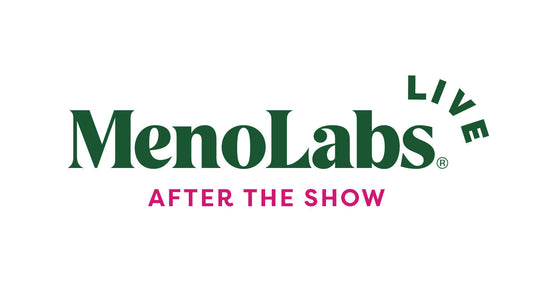Every woman will experience menopause, and the process can begin as early as the 30s, or as late as the 50s. But, once you hit menopause and no longer have your period, is there still a chance you can get pregnant?
The answer is more complex than you might think.
Can you get pregnant during perimenopause?
It’s good to note that during perimenopause, which occurs in the lead up to menopause and can take 7 to 10 years, a woman can get pregnant naturally, even if she is only getting her period sporadically. Many women have experienced this, including celebrities like Halle Berry, who have spoken about it.
By the time you’re over 45, the American College of Obstetricians and Gynecologists says getting pregnant naturally is “unlikely for most women.” But unlikely doesn't mean it never happens.
Change-of-life babies can happen; If you're not looking to add a surprise addition to your life, your gyno will likely suggest continuing to use birth control through perimenopause. There can also be some hormonal benefits to birth control pills or an IUD if you're suffering from symptoms, so its best to talk to your doctor about your options.
Can you get pregnant after menopause?
In general, if 12 months have passed without any period, a woman can no longer naturally get pregnant and have a child. This marks the time when there’s no need for birth control of any kind, though condoms are always a good option for safer sex practices.
But, if a woman has gone through menopause and interested in becoming pregnant, there is an option.
What are the options to get pregnant after menopause?
For those looking to get pregnant after menopause, IVF is the best option. Your postmenopausal eggs are non-viable, but women can still use their own previously frozen eggs, or use donor eggs. If you choose to go through IVF after menopause, you'll go through hormone therapy before implantation and your doctor should be honest with you about the risks and likelihood that you'll be able to carry a baby to term.
What exactly is IVF?
According to the Mayo Clinic, In Vitro Fertilization (IVF) is a complex series of procedures used to help with fertility or prevent genetic problems and assist with the conception of a child. The IVF procedure involves retrieving mature eggs from ovaries and using sperm to fertilize them in a lab. Then, the fertilized egg (embryo) or eggs are transferred to the uterus.
Is it safe to have a baby in midlife?
If you decide to undergo IVF or want to take a shot at getting pregnant naturally, it's important to know the risk to your health and to understand the odds. IVF is a huge decision, both emotionally and financially. An honest discussion with a fertility specialist is the best place to start.
Related Products
Blend Besties Bundle
Fresh Start Bundle
4.7 / 5.0
(553) 553 total reviews












